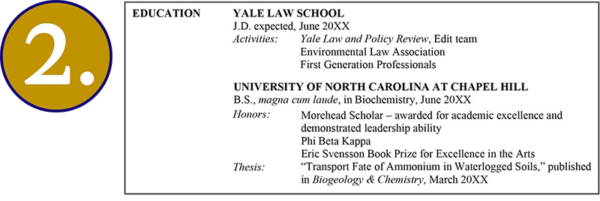
What are transcripts?
And how to get them.


So, how do you start?
Transcripts are the official grades of the classes from an academic institution. They range from kindergarten to 12th. Transcripts are also very important in order to apply for American universities. And again be necessary a masters and, as you guessed, to doctoral studies as well.
Let’s take the University of Southern California as a example.
USC has a long time standing as one of the top public universities in the United States. They have a very standard procedure for sending transcripts, so therefore we will use them as a model.

Make it official in two steps.
Since English is the target language all transcripts must be submitted in English. Do universities will require two copies: the original transcripts from and the translation.
- Original official transcripts from your university.
- Translated official transcripts from a certified translator into English.
Step 1. Original official transcripts from your university
These need to come directly from your register’s office in the university. They also must have the stamp and seal and be signed by an authorized staff member. You will need to request a copy be sent for each application, take into account that the translator will need a copy as well.
Do not use unofficial or print outs available online.


2. Get them translated
The next step is to have them translated to English. This must be done by an official translator certified by the Ministry of Foreign Affairs or the Ministry of Education depending on the country.
Legal English Innovation features Official Translators on staff and can help you with any project you may have.
Education

Education
Let’s dive in with education first.
- As stated earlier, the tipping point is about five years to start with “Education” or “Experience”.
- For current students, list the law degree you expect to earn and your anticipated graduation date. Examples: LL.M., May 2024; or J.D., May 2025.
- List degrees in reverse chronological order.
- Latin phrases are very common in education sections and should be italicized for example: LL. B. magna cum laude.
- This section should also show if you have transferred, studied abroad, or were enrolled in any dual credit programs.
- Do not include your undergraduate GPA, (it is self-evident if you graduated magna cum laude)
- Do not list your high school information, SAT, nor LSAT scores.
Honors & Activities

Honors & Activities
And now to head on to Honors and Activities. These should be two separate subsections in Education. Add a maximum of 3 to 5 entries per subsection. Too many “honors” or “activities” will diminish the effect of the real shining stars. The Honors entries may show any awards or notable distinctions given to you for example, Phi Beta Kappa, or being put on the Dean’s List.
Please take note to choose wisely where to put the Dean’s list because it can be redundant when you have graduated with Latin honors. The Activities entries may indicate relevant information about student organizations, reading groups, sports, or any clubs you have been involved in.
Honors:
- Moot Court awards
- Major law journal publications
- Scholarships and fellowships
Activities:
- Public service positions
- Student government positions
- Work in the law clinic
Publications

Publications
Writing the right writing section can be tricky. Thesis and Publications are very important in academic resumes and CVs. If your undergraduate thesis had a distinct connection to law, list it as a subsection under Education in italics. Any significant articles that you have written or been a part of for a journal, magazine or other publication should take a separate Publications section, in Bluebook format. Please indicate publishing dates including pending or forthcoming publications.
Experience
Experience
An experience can be worth 1000 words, but you don’t have that much space. List the entries in reverse chronological order, beginning with your most recent first. This can include volunteer work, paid positions, pro-bono work, internships and more.

Company Information
-
- Include the name of the employer, the location, job titles, and dates. This is important to be accurate and show attention to detail. Check every comma, dash, space and period. Choose the job title very carefully to each position you’re applying for.
- Mark the dates on your résumé clearly.
- Align year on the right-hand margin.
- Use Summer 20XX, Fall 20XX etc. or just the year.
- Avoid using exact months.
- Include the name of the employer, the location, job titles, and dates. This is important to be accurate and show attention to detail. Check every comma, dash, space and period. Choose the job title very carefully to each position you’re applying for.
Position Description
- Use a description to highlight the work experiences that are most critical to the position. Use details, but you do not exaggerate the extent of your responsibilities. Break the descriptions into manageable phrases that are easier to scan than sentences.
- Use action verbs to start each segment.
- For current position, use 1st person, simple present
- For past position, use 1st person, simple past
- Omit the use of passive verbs, “was directed by”,
- Omit subject pronouns, I, you, we, etc.


Casual Jobs
-
-
List any casual university jobs, such as sales clerks, serving positions, and receptionist in shorter descriptions. Do not omit these jobs due to the fact that they fill gaps in employment history, as well as show hustle while in school.
-
Additional Information:
– Languages
– IT Skills
– Personal Interests.

Languages
Languages are very important to list accurately. List relevant languages spoken, along with any certifications to verify the level. Do not over exaggerate notifications, as you may be asked to demonstrate them during an interview if they are an important part of the position.

IT Skills
-
-
Moreover, technology skills need to be listed carefully. There are universal skills such as MS Word and MS Excel, which are universal at an average level. List these programs if you have advanced certifications which can be useful to the employer. Next, LL.M. applicants need to focus on legal software, LEXIS-NEXIS or Westlaw will not set you apart from other candidates, however if you have particular skills such as coding, analytics they can be relevant list them as necessary.
-
Interests
-
The last line of your CV résumé, should make a large impact. This is invaluable for interviews and it is your outside hobbies or interests.


References
-
-
It is not necessary to add “references upon request”, or any other line to indicate this. Employers and it will request them separately, so do not use any valuable space on your résumé. See our other articles on reference sheets, cover letters, and personal statements.
-
Join our free seminar every week. LEARN WITH US
Register above now! Don't miss out!


